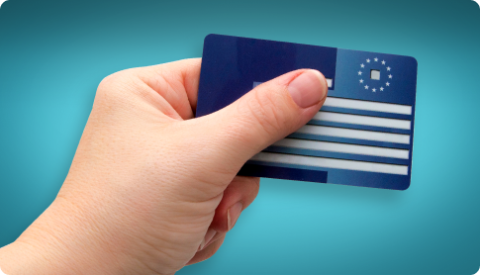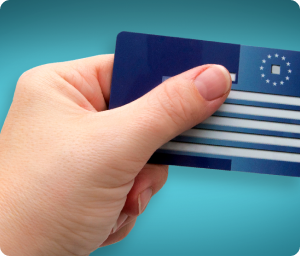Pursue your passions
Don’t let your diagnosis define you. Keep doing the things you love, and experiment with new activities when you feel inspired to. Just remember to check with your healthcare team that it’s a safe activity.
Take care with alcohol
We all know that alcohol can have harmful effects,2 and the dangers are amplified for people with IgA nephropathy.3–5 Moderate drinking might be okay for some, but it depends on things like your stage of disease and the type of treatment you’re having.6,7 Check with your healthcare team to find out whether alcohol is safe for you, and if so, which types and how much.8 Whatever you decide, bear in mind that alcohol consumption is a potential risk factor for several complications of IgA nephropathy, such as high blood pressure (hypertension) and further kidney damage (hypertensive nephrosclerosis).9
Quit or reduce smoking
Smoking cigarettes or even just passive smoking can make IgA nephropathy worse and may also lead to cardiovascular disease.10,11 If you’re a smoker or a vaper, you will be advised to stop by your healthcare team, who can provide resources and support to help you stop.


Living with IgAN can mean you feel low on energy some days, but incorporating regular movement can boost energy and help support your kidney health at any stage of your condition.1,12–15
If you’re looking to become more active and not sure where to start, gentle movement like walking with a friend, dancing at home to your favourite music or a restorative yoga class are all great ways to begin adding exercise to your daily life.
Whatever you choose, find an activity that you enjoy doing on a regular basis and that fits easily into your everyday routine. And remember, gentle exercise for 5 minutes a day is better than no exercise at all.16
To boost your motivation, it can be helpful to set yourself small goals or challenges at first. For example, you might consider using a fitness tracker to track your daily step count or simply setting a goal, such as walking for at least 20 minutes each day. And remember not to push yourself too hard: listen to your body and check in with your healthcare team to make sure your routine is safe and suitable for your fitness level.
To find out how exercise can benefit your mental health too, click here.
Working with IgA nephropathy
Brain fog and fatigue can have an impact on your work performance, and you might need time off when you have a medical appointment, or your symptoms flare up.17 Don’t feel afraid to let your employer know that you have a chronic medical condition.17 They might be able to offer a remote or flexible working arrangement so you can work in a way that respects your needs.17 It’s also worth finding out what your legal rights are, as you could be entitled to other reasonable adjustments to support your performance at work.17


Studying with IgA nephropathy
If you’re at school, college or university, you might find that your symptoms affect your ability to study or take exams.18 It could help to talk to your personal tutor to find out what support your institution can offer.18
IgA nephropathy does not need to stand in your way of exploring the world through travel – all it takes is a little extra preparation and planning! Here are a few things to consider:
Check in with your nephrologist before you go
Make an appointment to speak to your nephrologist about your trip. Whether you’re planning a long trip or a short break, it’s important to make sure you have a prescription for enough medication to last while you’re travelling. Your healthcare team will also be able to advise you on any vaccinations you may need before you travel, and on what is (or isn’t) safe to do while you’re away.


Get the right insurance
Carefully consider your insurance. When travelling with IgA nephropathy, it’s best to prepare for the unexpected. Make sure you select an insurance policy that covers cancellation due to your illness, transportation to a healthcare setting in the event of an emergency, and the cost of receiving healthcare in foreign countries.21 Insurance companies often charge more for travel insurance if you have kidney disease, so get as many quotes as you can from different providers.21 Insurance companies will normally need details of your medical conditions.21 Giving this information will help you find cover that meets your needs.21 It’s vital that you know exactly what is and what is not covered by your insurance.21 Don’t leave it until the last minute – make sure you leave yourself plenty of time before your trip to find the best insurance policy for your needs.21
Prepare for emergencies
As an extra precaution, you can also make your own emergency contact cards to go in your purse or wallet – these could contain important phone numbers such as local emergency services, or information about your medical needs. If you’re travelling with others, it’s worth sharing this information with them too. And if you’re going abroad, it may also be wise to learn some phrases in the local language, so you can ask for help in an emergency.
Go at your own pace
Travelling can be overwhelming for all of us, regardless of health status. If it’s your first trip since getting diagnosed, you might be nervous about what to expect while travelling with IgA nephropathy. When possible, allow yourself a couple of hours (or a day) after you travel to recover. Sometimes, you may feel too tired to do all the activities you had planned, and that’s okay. Be honest with yourself and those that you are travelling with, and don’t be afraid to take some time to yourself if you need to.
Living with a chronic condition can lead to feelings of isolation, but it does not need to be that way.22 There is a wealth of support available online through patient support groups and forums.23 These can be invaluable when it comes to learning about your condition from the perspectives of other people living with IgA nephropathy.23 You might also wish to search for online forums or support groups related to kidney disease in a broader sense.24 These can be also useful as kidney diseases tend to affect the body in similar ways and therefore carry the same symptoms.25

About IgA nephropathy
Watch to learn more about your condition.

Symptoms of IgAN
Understand the signs and symptoms of IgA nephropathy.

Diet with IgAN
Find out how diet may help maintain kidney function.

IgAN and mental health
However you might be feeling, you’re not alone. Find support here.
When you’re feeling fatigued, socialising might be the last thing on your mind, but keeping in touch with the people who care about us is so important for our wellbeing.19 Neglecting this can lead to feelings of isolation, anxiety and even depression.19 On days where your energy is low, just calling up a friend for a chat, inviting someone to go for a gentle walk or to come over for a takeaway and film can all help you feel connected and loved.
It can be difficult to explain your condition to others, who might not immediately understand how an invisible condition like IgA nephropathy can have such a profound impact on your life.20 To help you feel seen and heard, we created a guide you can share with the people closest to you. It explains how IgA nephropathy is likely to affect you and ways they can offer support. Using this guide means you don’t have to figure out how to explain things in your own words unless you really want to. Download it here.